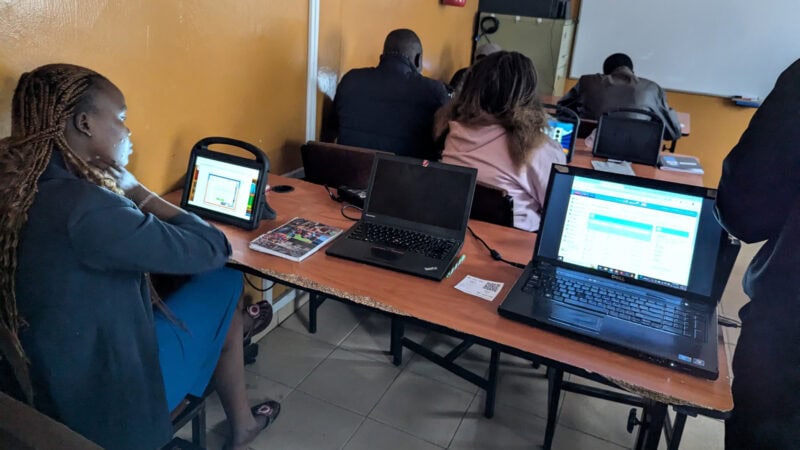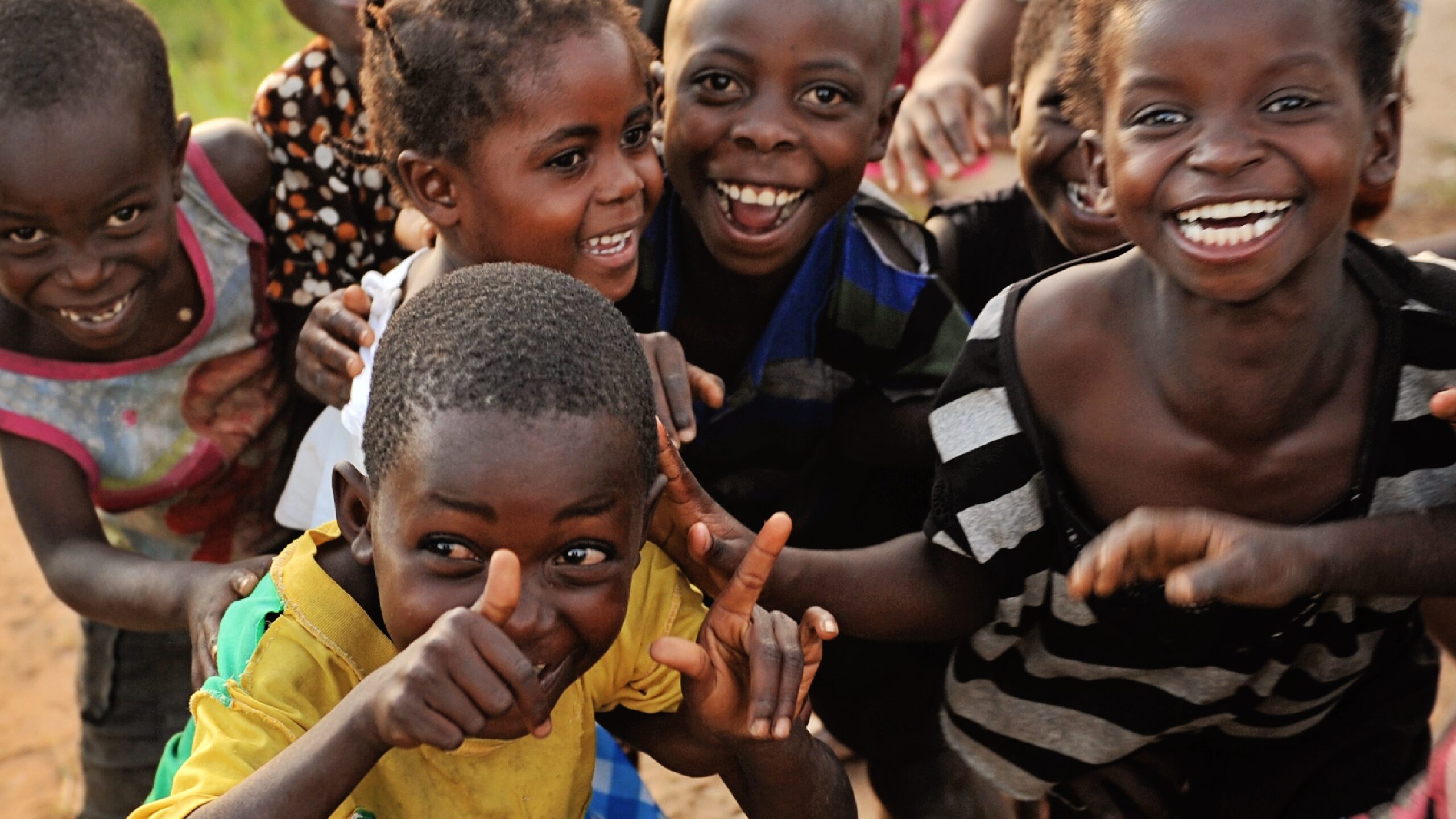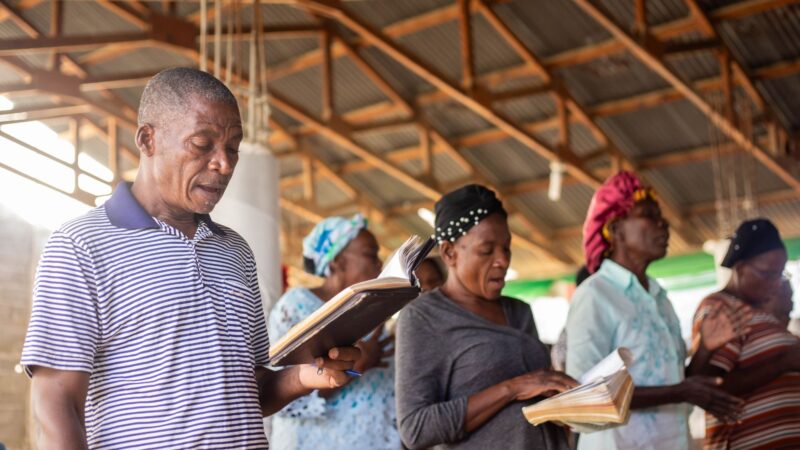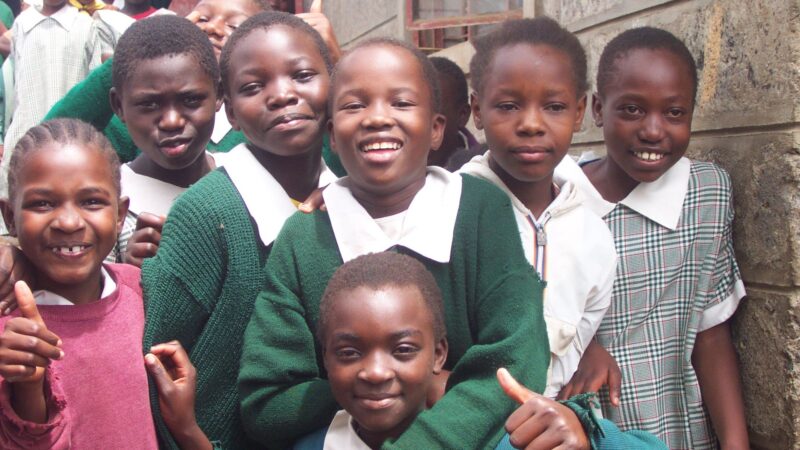Maybe you can relate to this. At least once a week, one of my kids ask, “Mom, why do I have to go to school every day?” And each time I tell them the same thing: “You’re building a foundation of education for your future. You’re gaining the skills you need to do what God designed you to do.” And each time, they respond (with an occasional eye roll), “Okay mom, we’ll go today.”
Truly, education forms the foundation of a hope-filled, sustainable future. Sadly, when families live from hand to mouth, unsure where their next meal will come from, education isn’t even on their radar. But education can give adults and kids the literacy and skills to escape poverty.
Today, you have the privilege to travel with Catherine on her precarious educational journey–one that taught her to depend on God and the generous provision of family and friends. And today, as a literacy teacher at the Natoot Farmers Training Center, Catherine actively passes on the gift of education that she received.
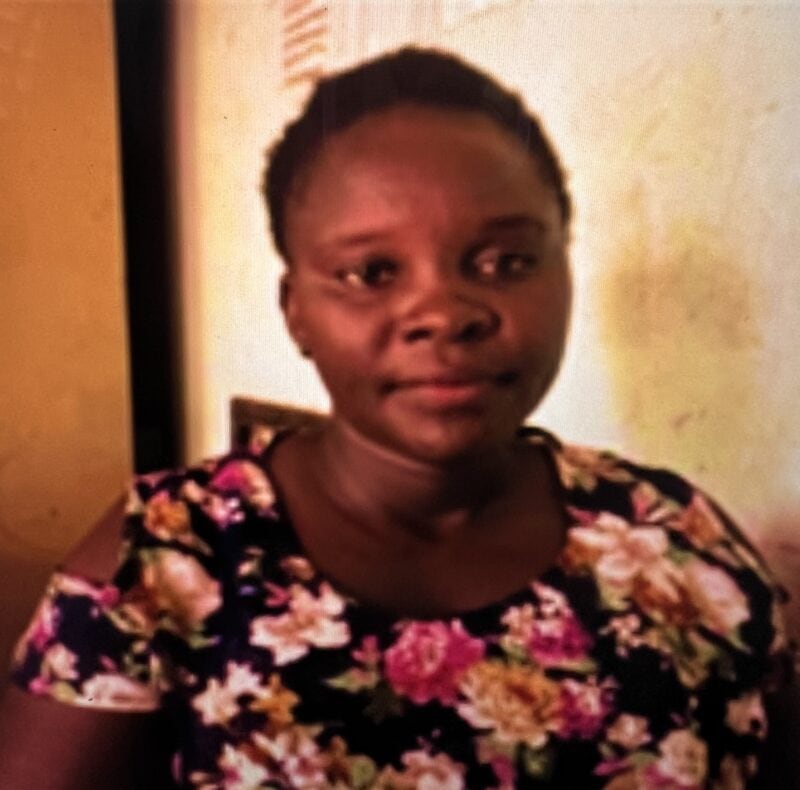
Catherine’s Educational Journey, in Her Own Words
“My name is Catherine Ekuwom Loote. I am 31 years old and a single mother of a 7-year-old and a 6-year-old. I was born in 1993 in a village called Berea in Nakuru County, the fourth of eight siblings. My middle name suggests that when I was born, rain was about to fall. I was named after the wind that precedes rain. My last name, Loote, was my grandfather’s name.
Loote Losire, my grandfather, lived in Kapedo, a village in Turkana County. He was a pastoralist who kept herds of goats, cattle, camels and donkeys. He was a wealthy man according to the standards of that time. Kapedo village borders the Pokot people, a rival pastoralist tribe. They practice deadly cattle raids just like my Turkana tribe. My grandfather fell victim to one of the Pokot raids. All his animals were stollen. Out of anger and rage, he moved his family to Laikipia more than 155 miles away. This was in the early 1970s when my father was a teenager. There were no schools then in Turkana. My father and most of his siblings (except for his youngest brother Bishop Simon Esuron Loote) did not have the privilege of attending school.”
The Gift of Education
“I grew up in the village of Berea where there was a tea plantation estate. My father was a guard at the tea estate’s gate. At four years old, I followed my friends to play in the village only to find myself in school. At school, I was required to pay 800 shillings ($6) in school fees. My mother gave the money to my father to accompany me to school and pay for school. But instead, my father spent the money on beer. As a result, I spent three years at home because we could not pay school fees. Then in 2003, the newly elected president declared primary education free. Finally, I rejoined school in first grade.
During this period, when I was in primary school, I used to skip school to work at the tea farm to earn money to supplement my family’s income. During my final year in primary school, I moved to Lodwar in Turkana County to join my uncle Simon Loote. Since he was the only one who went to school in my grandfather’s family, he knew the value of education and supported me. But many other kids from my family also came to live with him because he supported our desire to go to school. But as a pastor with little income, he could not support all of us.
In 2011, I started high school after receiving school fees from some generous people and graduated in 2014. I have remained in Lodwar since then, while my parents are still living in Nakuru at the tea plantation estate.”
The Cost of Education
“In 2015, I volunteered to teach first grade at Natoot primary school for one year. In 2016, I joined a teacher training college here in Lodwar. I trained as an Early Childhood Education teacher and learned how to teach pre-primary school students as young as 3-4 years of age. Now, I am a career teacher.
My first position as an early childhood teacher was in a private academy here in Lodwar. It is called The Canopy School. I was there for one year in 2021. Unfortunately, this brief employment led to my breakup with my husband. This speaks our community’s belief that husbands should be dominant. Men in our society become violent when women get formal jobs. A woman in our society is expected to sit at home and only do manual jobs like selling charcoal to get money to buy food. Most girls do not go to school because of the belief that women should not make money or have financial freedom. When I left my husband’s home which was near the school, I came back to stay in Natoot. But it was too far from the school where I was teaching so I had to quit. I started looking for a new job and found my new job at Natoot Farmers Training Center.
Now, I serve as an adult literacy teacher at the Natoot Farm. I enjoy instructing adults and learning about their challenges as people who could not go to school as children. Soon I will begin to teach the Word of God to all the farmers. This will present me with new challenges as I guide the farmers toward spiritual growth just as they nurture the growth of their crops.”
God’s Calling
“Teaching the adult farmers at Natoot has been a lot of fun. Seeing an adult the age of my mother struggling to hold a pen, learning to pronounce words in Swahili language is exciting. When I hold the hand of an adult as he writes, I am doing something positive. When they learn to pronounce English words like “Thank you,” a word that is even missing in Turkana vocabulary, it is quite fulfilling. Seeing them start to memorize their cellphone numbers is a big step forward for these farmers. Some have said they can now go to the capital city and navigate the city roads because they can read directions on the roads.
The biggest challenge that I have experienced in my work at Natoot farm has been inconsistency in attendance. Sometimes farmers miss classes when they have not eaten anything the previous night and they are forced to go look for food. When they fall sick or their children fall sick, they must miss class because they must walk long distances looking for medication. Even when we have ceremonies in the village, the event takes precedence to attending class with expectation that by so doing, they will be able to find something to eat. Life in this village is so difficult and it has really taught me humility and given me a heart of service.”
You Can Share the Gift of Education, Too
Earlier this year, we held a campaign to expand the Natoot Farm in Kenya, giving many new farmers a chance to provide for their families with healthy food and sustainable incomes.
In addition to transforming the small community of Natoot by expanding their self-sustaining farm, these farmers are also learning to read! How wonderful is that?
Many adults in this remote and impoverished part of Kenya never had a chance to go to school. But now, as adults, they are learning to read and passing this life-changing skill on to their children.
Please consider partnering with us to offer impoverished families with ongoing access to education and literacy programs. And please keep these amazing farmers in your prayers as they transform their community for today, tomorrow and eternity.

